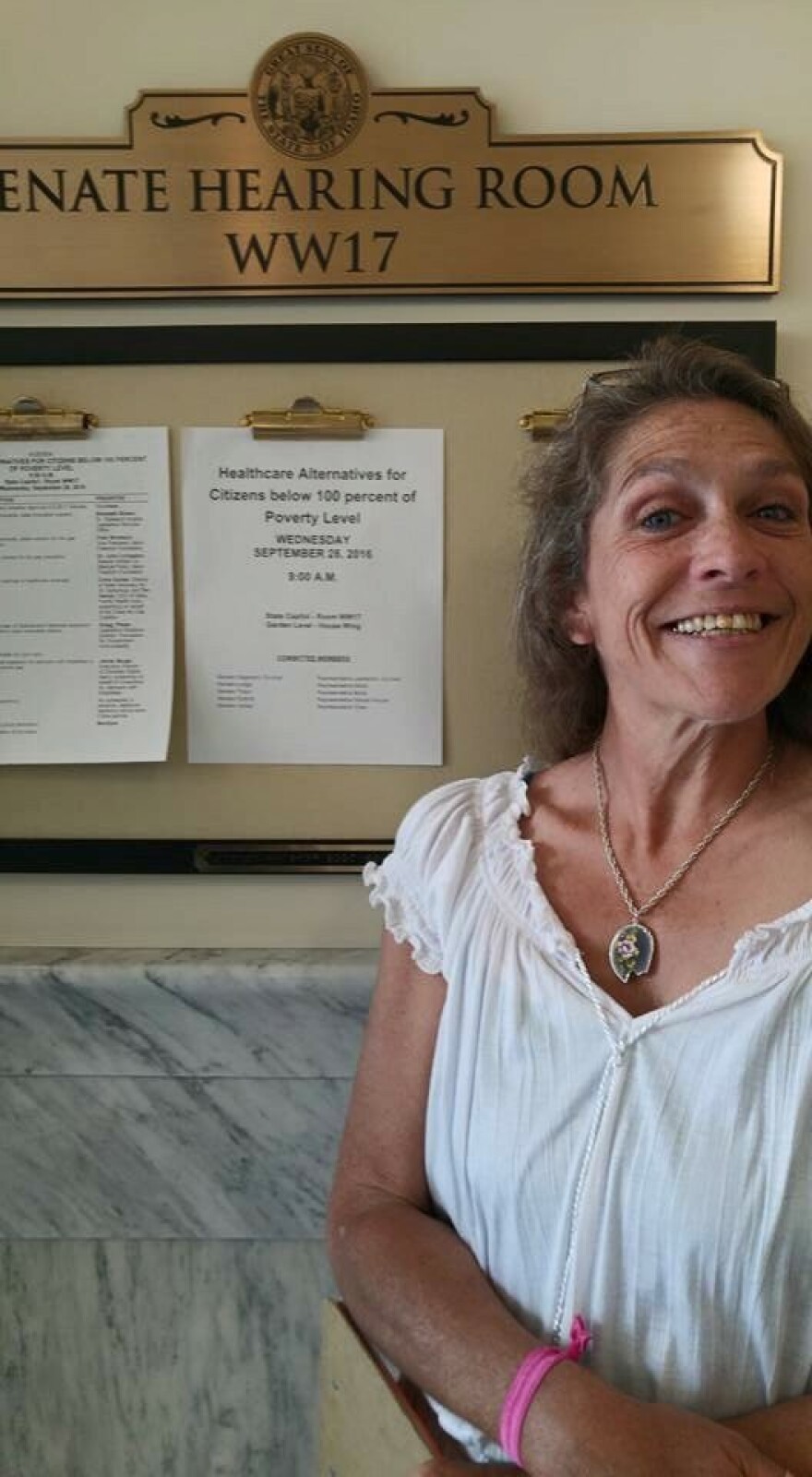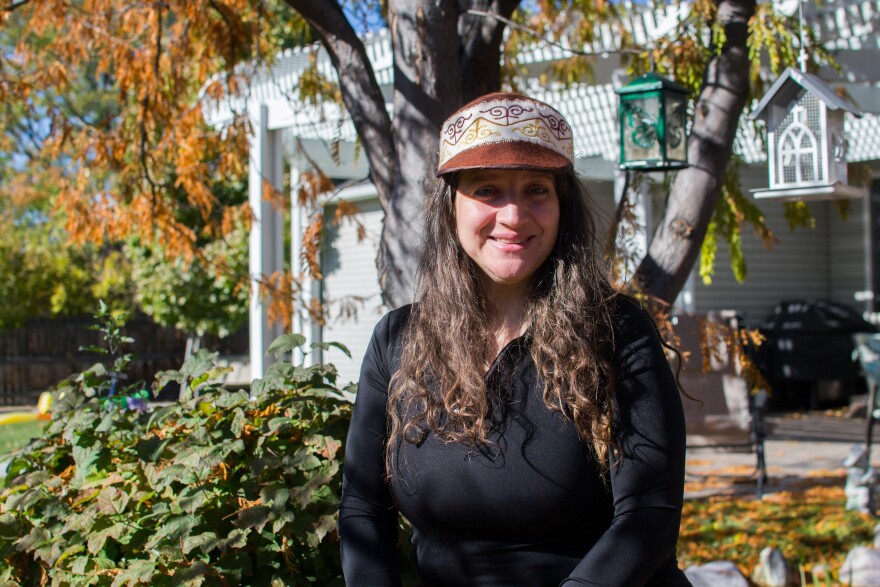Lewiston is a pulp mill town that sits on the banks of the Snake River. Jet boats take visitors deep into Hells Canyon or schlep anglers to the perfect spot to catch a steelhead. The river also separates Lewiston from Clarkston, Washington – both named in honor of the leaders of the Corps of Discovery.
And that’s where 54-year-old Marilena Delgado, who goes by Sugar, felt she had to move in 2014 – partially to get a fresh start after she broke up with her husband upriver in Orofino.
But she also left to treat a rare condition called SMAS, which squishes parts of her intestines together, making it hard to eat.
“I had noticed the weight loss and the belly pain every time I eat, which I always call my ‘steak knife belly pain’. It’s just excruciating,” Delgado says.
The pain made her lose 50 pounds in a year, turning to protein shakes to try to help her keep on weight while working odd jobs.
“It’s just really taken a toll on my body, it really has,” she says. “I think if I could’ve gotten any answers sooner, I don’t think I’d be as frail as I feel half the time.”
She was able to enroll in Medicaid after moving across state lines to Clarkston – something she wouldn’t have been able to do had she stayed in Orofino.
But, if Idaho ever expands Medicaid eligibility, Delgado says she’d immediately move.
“I want to go back home. I want to go back to Orofino.”

Hundreds of miles away in Idaho Falls, 48-year-old A’lana Marmel is one of the estimated 91,000 residents who could enroll in Medicaid if voters approve Proposition 2. She’s lived without insurance for much of her life.
Her kids have insurance through Idaho’s Children’s Health Insurance Program, commonly known as CHIP. Although Marmel has a catastrophic insurance plan through her job, she can hardly meet her high deductible while working as a server in a local hotel.
“I don’t typically seek medical care for if I get sick and then we keep our fingers crossed,” she says.

If she would’ve gotten seriously sick while uninsured, the county or state taxpayers would likely have had to pick up her bills. Those costs typically add up to millions of dollars each year between the indigent fund and Catastrophic Health Care Fund.
But unlike Delgado, Marmel has no plans to move – even to get healthcare.
“I love Idaho. I live here because I love the mountains. I’ve been here for over 25 years now, so this is my home.”
Back in 2012, Governor Butch Otter’s task force recommended lawmakers expand Medicaid coverage unanimously.
Former state Senator Dan Schmidt (D-Moscow) was in the group and remembers a consultant’s presentation early on.
“He kind of looks at us and says, ‘You know, I’ve done this for a lot of states, but this probably makes the most sense for you guys – Idaho,’” Schmidt says.
But the proposal went nowhere.
Despite projections showing the state would save $290 million over 10 years, many conservatives didn’t want to be more dependent on the federal government, or be seen as endorsing the Affordable Care Act.
“I think [Republicans] spent their energy on the state-based exchange and the fight was very bitter.”
"It's just really taken a toll on my body, it really has. I think if I could've gotten any answers sooner, I don't think I'd be as frail as I feel half the time." -Marilena Delgado
In 2015, Schmidt tried to push an expansion bill through committee. When that failed, he tried to use a procedural move on the Senate floor to try to prevent his bill from being locked in a desk drawer, but many Republicans led by former Senate Majority Leader Bart Davis (R-Idaho Falls) quickly blocked it.
“With time, rather than trying to muscle legislation through, I have confidence that legislators will have an increased understanding of what’s the right approach, what’s the best approach, for Idaho going forward,” Davis said.
Some Republicans did want to fix the system, including state Rep. John Vander Woude (R-Nampa).
“The difficulty was is there was a bunch of them dead set, absolutely against it and some of them dead set in favor of it and to reach a consensus within the legislature is not as easy as you’d think,” Vander Woude said at a recent panel discussion on Proposition 2.
He opposes Medicaid expansion. He’d rather avoid the state paying for a catastrophic event and helping someone get preventive care instead.
But despite having six years to come up with a fix, lawmakers have punted every time.
In part two of our series on Proposition 2 we look at the effort itself and the volunteers who have worked nonstop to ensure the initiative passes.
This story has been supported by the Solutions Journalism Network, a nonprofit organization dedicated to rigorous and compelling reporting about responses to social problems.
Follow James Dawson on Twitter @RadioDawson for more local news.
Copyright 2018 Boise State Public Radio




